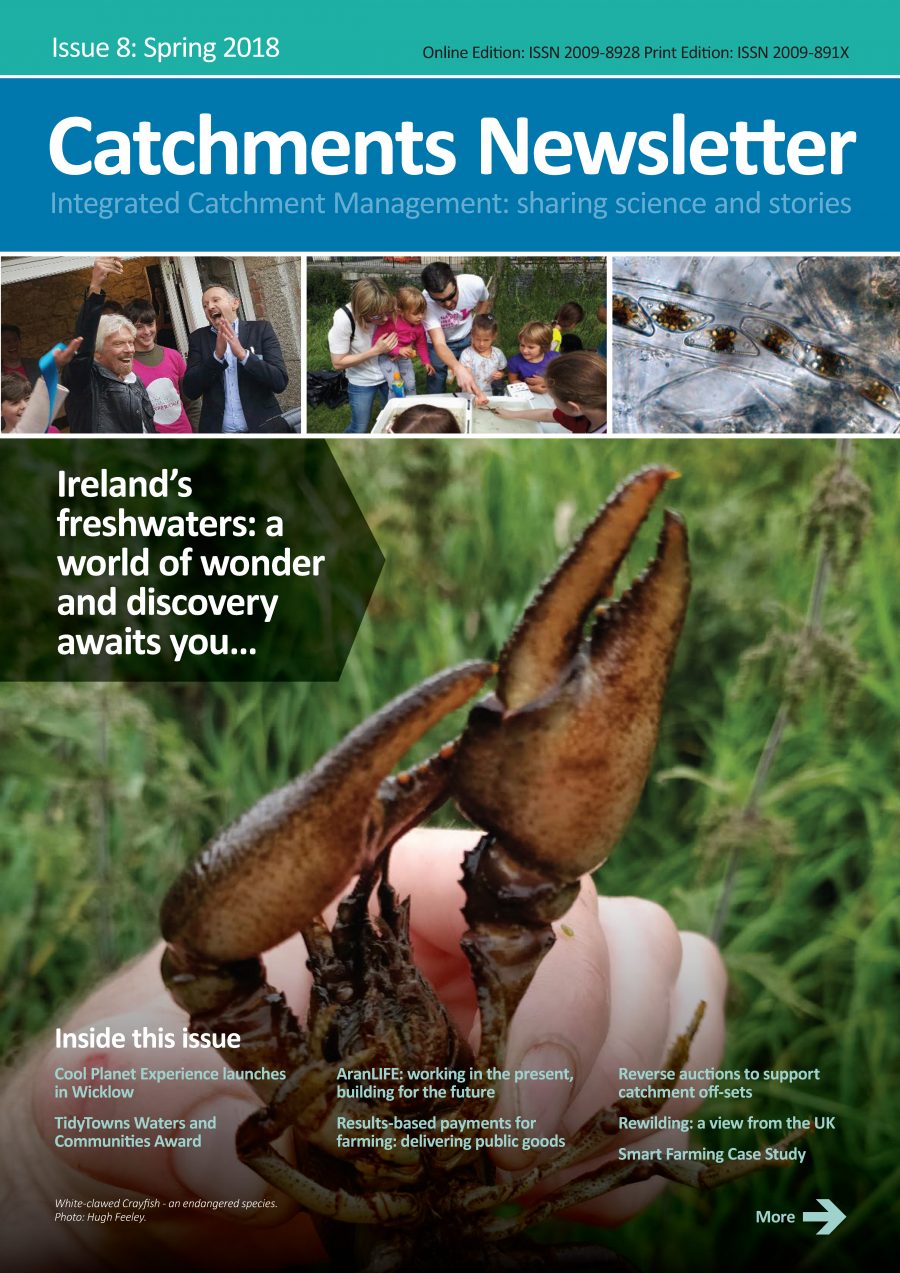Catchments Newsletter – sharing science and stories. Spring 2018.

| Version | |
| Download | 178 |
| Stock | ∞ |
| Total Files | 1 |
| Size | 4.79 MB |
| Create Date | 3rd April 2018 |
| Last Updated | |
Spring 2018 Catchments Newsletter
The Spring 2018 Catchments Newsletter looks at:
- Ireland's freshwaters: a world of wonder and discovery awaits you
- News and events:
- Cool Planet Experience launched in Wicklow
- Source to Tap in Erne and Derg catchments
- Tidy Towns: Waters and Communities Special Award, and celebrating community success in Ashbourne
- River Explorers by Leave No Trace
- Teagasc Agricultural Catchments join Twitter
- Hydrogeologist field trip report
- Poster: How you can Clean, Check Dry your wet gear to help save the White-clawed Crayfish
- AranLIFE: working in the present, building for the future
- Results-based payments for farming: delivering high quality biodiversity and other public goods
- Time to rewild? - a view from across the Irish sea
- Smart Farming Case Study
- Using reverse auctions to support delivery of catchment off-sets
- It's all about the algae
| File | Action |
|---|---|
| Catchments Newsletter - sharing science and stories. Spring 2018..pdf | Download |
Download





